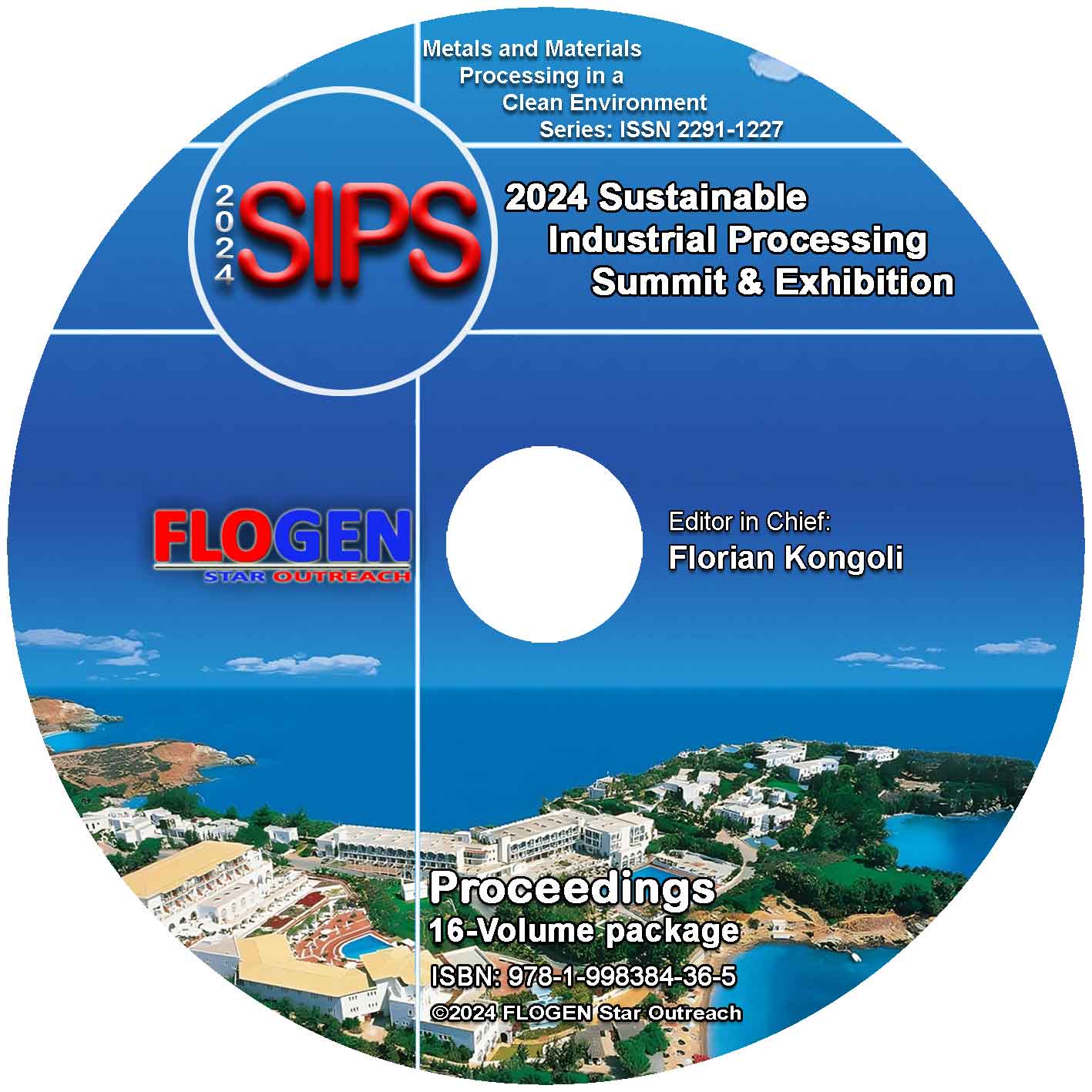2024 - Sustainable Industrial Processing Summit
SIPS 2024 Volume 16. Intl. Symp on Electrochemistry, Molten Salts, Corrosion, Recycling and Battery
| Editors: | F. Kongoli, C.A. Amatore, R. Fehrmann, G. Kipouros, I. Paspaliaris, G. Saevarsdottir, R. Singh, R. Gupta, M. Halama, D. Macdonald, F. Wang, M. Barinova, F. Ahmed, C. Gaidau, X. Guo, K. Kolomaznik, H. Ozgunay, K. Tang, N.N. Thanh, S. Yefremova, K. Aifantis, Z. Bakenov, C. Capiglia, V. Kumar, A. U. H. Qurashi, A. Tressaud, R. Yazami |
| Publisher: | Flogen Star OUTREACH |
| Publication Year: | 2024 |
| Pages: | 243 pages |
| ISBN: | 978-1-998384-34-1 (CD) |
| ISSN: | 2291-1227 (Metals and Materials Processing in a Clean Environment Series) |

CD shopping page
SUSTAINABLE MATERIALS RECYCLING FOR PERMANENT MAGNETS AND Li-ION BATTERIES
Ikenna Nlebedim1;1AMES NATIONAL LABORATORY, Ames, United States;
Type of Paper: Regular
Id Paper: 280
Topic: 7
Abstract:
The need to transition to a clean energy economy has received significant global attention in recent years. This has led to pledges by different nations to get to net-zero emissions. For example, the United States targets achieving net-zero emissions by 2050. Of the different strategies for meeting the targets, significant emphasis has been placed on the electrification of transportation systems. This requires advancement in two key components: traction drives and batteries in electric vehicles (EVs). Recycling of the critical metals contained in these components is one aspect of the advancement strategies. Despite several years of research in recycling permanent magnets and batteries, there are still hurdles to overcome towards making a significant impact.
This talk will, therefore, focus on approaches employed in the recycling of critical metals from permanent magnets in EV traction drives and batteries. It will include a discussion of the key limitations and the opportunities to overcome those. Some innovative approaches developed in the Critical Materials Innovation Hub and Ames National Laboratory will be presented. Particularly, we present the novel acid-free dissolution recycling (ADR) approach for recovering rare earth elements from e-waste. We will also present the newly developed Batteries Recycling and Water Splitting (BRAWS) technology that uses water as the only solvent for recycling Li-ion batteries, uses CO2 as feedstock and produces green hydrogen as a co-product.